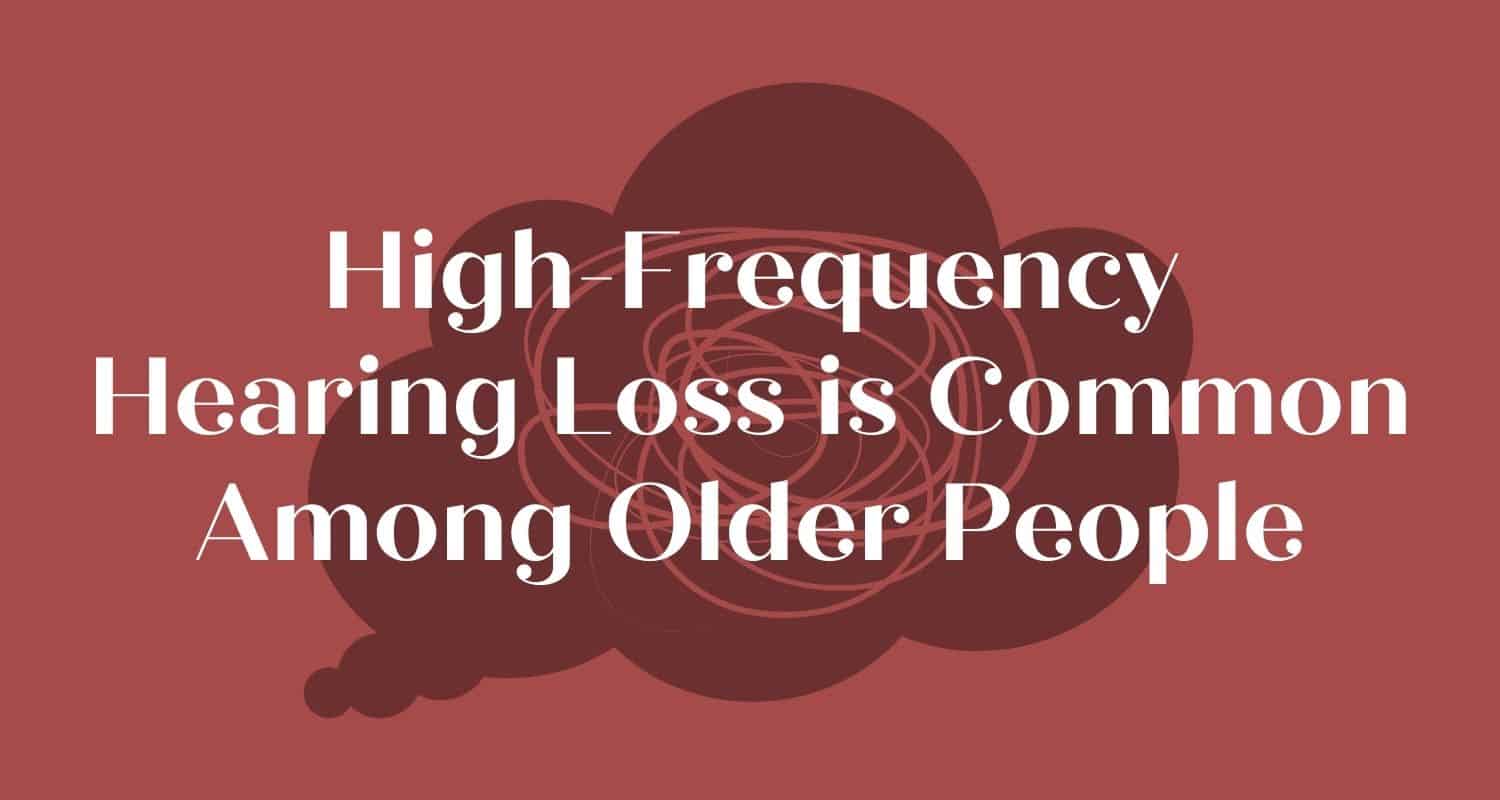
Aging is one of the most significant indicators of hearing loss, and the chances of developing hearing loss increase as we age. In fact, half of all adults who are 75 and older have disabling hearing loss. Also known as presbycusis, age-related hearing loss often results in a high-frequency hearing loss which is characterized by not being able to hear high-pitched sounds.
It is important to be able to recognize the early signs of this type of hearing loss so that you can intervene early. Early intervention can change the trajectory of your hearing health, maximizing your hearing capacity and enhancing daily life. And most importantly, treating hearing loss can help reconnect you to the people you love.
Age-Related Hearing Loss
High-frequency hearing loss is disproportionately experienced by older adults. According to the National Institute on Deafness and Other Communication Disorders (NIDCD):
- 8.5% of adults ages 55 to 64 have hearing loss
- 25% of adults ages 65 – 74 have hearing loss
- 50% of adults ages 75 and older have disabling hearing loss
These statistics highlight two important patterns: hearing loss among older adults is pervasive and the risk of hearing loss increases with age.
The causes of age-related hearing loss are complex. Experts suggest a few factors that contribute to the link between age and hearing loss:
- Changes in the inner ear: hair cells in the inner ear convert soundwaves into electrical signals that get carried to the brain through auditory nerves. Experts suggest that older adults can experience changes to the cells, nerves, or pathways in the inner ear over time that can cause hearing loss.
- Cumulative toll of noise exposure: the impact of a lifetime of being exposed to loud noise can desensitize hair cells in the inner ear, preventing them from sending auditory information to the brain.
- Existing medical conditions: extensive research shows that numerous medical conditions increase the risk of developing hearing loss. This includes cardiovascular disease, hypertension, diabetes, and osteoporosis. Older adults are also disproportionately impacted by these conditions which then also increases the risk of hearing loss.
Recognizing the early signs of high-frequency hearing loss can help you acknowledge that you are experiencing changes to your hearing health that needs to be evaluated.
Recognizing Hearing Loss Symptoms
High-frequency hearing loss typically develops gradually. This can make it difficult to recognize the incremental change in hearing ability which often leads to a delay in treatment. Early signs to look out for include:
- Difficulty hearing speech, especially in environments with background noise
- Having trouble following and understanding what others are saying
- Increasing the volume on the television or other electronic devices
- Speaking louder without necessarily being aware of it
- Identifying where sound is coming from (known as sound localization)
- Tinnitus, a buzzing or ringing like noise in one or both ears
- Dizziness and/or issues with balance
- Asking others to repeat themselves
- Feeling depleted and exhausted after conversations and social interactions
These symptoms can be mild to more severe depending on the degree of hearing loss. Intervening as early as possible can help support your transition into better hearing health.
Treating Hearing Loss
With the wealth of hearing health resources and services available today, there are effective ways to treat hearing loss. The most common treatment is hearing aids which are electronic devices that are equipped with technology that detects, amplifies, and processes sound. This provides the auditory system with ample hearing support, making it easier for the ears and brain to process and understand speech as well as sound. Not only does this maximize one’s hearing capacity, but treating hearing loss offers numerous life-changing benefits. This includes strengthening communication, enriching and supporting a thriving social life, and improving relationships.
Today’s hearing aids are advanced pieces of technology that are capable of performing countless functions. There is a wide range of options, styles, and features that are designed to create optimal listening and user experience. At Swift Audiology, we work with leading brands and use our expertise as well as your preferences to recommend the most suitable options for your hearing needs. Treating hearing loss starts by having your hearing assessed. Contact us today to schedule an appointment for a hearing consultation.
